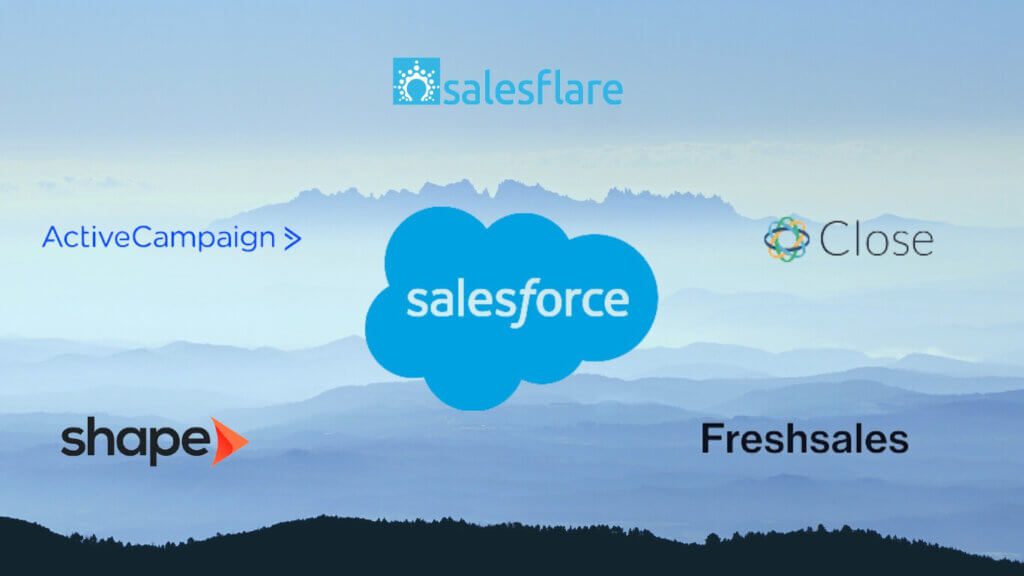Lead management software is a powerful tool designed to help businesses capture, track, and nurture potential customers throughout sales. It streamlines the journey from lead generation to conversion by automating various tasks, ensuring every lead is noticed.
Moreover, the software integrates with various marketing channels, allowing companies to gather leads from websites, social media, email campaigns, and events. Once captured, these leads are managed through automated workflows and personalized communication strategies to guide them toward making a purchase decision. At The Zulfis, we specialize in providing cutting-edge solutions that cater to your business needs, enhancing your sales efficiency and productivity.
Importance of Converting Leads into Customers
Undoubtedly, converting leads into paying customers is vital for the success and growth of any business. Indeed, effective lead management ensures that marketing efforts are maximized and potential opportunities are not lost. By efficiently managing leads, companies can improve their sales performance, increase conversion rates, and enhance overall efficiency.
Furthermore, the software helps bridge the gap between marketing and sales teams, ensuring seamless communication and coordination. This alignment improves the customer experience and optimizes resource allocation, allowing sales teams to focus on the most promising prospects. Ultimately, lead management software is crucial in driving business growth by turning qualified leads into loyal customers.
What is a Lead Management System?
A lead management system combines processes, methodologies, and software designed to capture, track, and nurture leads until they become paying customers. This system ensures that every potential customer is efficiently managed through the sales funnel, maximizing the chances of conversion.
Key Components and Processes
A lead management system encompasses several key components and processes for effective lead handling. These include lead generation, lead capture, lead qualification, customer segmentation, lead scoring, lead distribution, and lead nurturing.
Lead Generation
Firstly, lead generation is the first step in the lead management process, involving strategies and tactics to attract potential customers. For instance, this can be achieved through various channels, such as paid advertisements, search engine optimization (SEO), social media marketing, email campaigns, and content marketing. The goal is to draw prospects to your website or landing page where they can express interest in your products or services.
Lead Capture
Next, lead capture involves collecting contact information from potential customers interested in your offerings. Typically, this is done through web forms, landing pages, or direct interactions, where prospects provide their details in exchange for valuable content or offers. Then, the captured data is fed into the Customer Relationship Management (CRM) system for further processing.
Lead Qualification
In addition, lead qualification is the process of determining a lead's readiness to make a purchase. This involves evaluating the lead's needs, budget, authority, and timeline (commonly referred to as BANT: Budget, Authority, Need, and Timeline). Qualified leads meet the criteria set by the business and are likely to convert into customers.
Customer Segmentation
Customer segmentation divides potential customers into groups based on specific criteria such as demographics, behavior, geographic location, or interests. Thus, this allows for more personalized marketing efforts and targeted communication, improving the effectiveness of lead-nurturing campaigns.
Lead Scoring
Moreover, lead scoring assigns a numerical value to each lead based on their behavior and engagement level. Factors such as website visits, email opens, content downloads, and social media interactions are considered. The sales team prioritizes leads with higher scores for follow-up, ensuring that efforts are focused on the most promising prospects.
Lead Distribution
Lead distribution involves assigning leads to the appropriate sales representatives based on predefined criteria. This can be done automatically using lead management software, ensuring that the right team members promptly attend to leads.
Lead Nurturing
Finally, lead nurturing builds relationships with potential customers through personalized communication and engagement. This involves sending relevant content, offers, and information that address the lead's needs and interests. The goal is to establish trust and credibility, guiding leads through the sales funnel until they are ready to purchase.
Benefits of Lead Management and Tracking Software
Increased Efficiency
Lead management and tracking software streamline the sales process by automating repetitive tasks and organizing leads systematically. Consequently, this reduces manual effort, allowing sales teams to focus on high-value activities such as engaging with prospects and closing deals. As a result, the outcome is a significant boost in productivity and efficiency.
Higher Conversion Rates
Moreover, lead management software effectively manages leads through each stage of the sales funnel, ensuring no potential customer is overlooked. Features like lead scoring and automated follow-ups help prioritize the most promising leads, increasing the likelihood of conversion—this targeted approach results in higher sales conversion rates and increased revenue.
Improved Communication Between Teams
Lead management software fosters better collaboration between marketing and sales teams by providing a centralized platform for lead information. For instance, marketing teams can track the effectiveness of their campaigns, while sales teams receive qualified leads with detailed insights. This seamless communication helps align efforts, ensuring a cohesive lead nurturing and conversion strategy.
Better Insights and Analytics
Advanced analytics and reporting features in lead management software provide valuable insights into lead behavior, campaign performance, and sales activities. Therefore, businesses can track key metrics, identify trends, and make data-driven decisions to optimize their lead management strategies. These insights help refine marketing efforts and improve overall sales performance.
Automated Lead Scoring
Furthermore, automated lead scoring assigns values to leads based on engagement and behavior, helping sales teams prioritize follow-ups. This ensures that sales reps focus their efforts on the most promising prospects, reducing the time spent on unqualified leads and increasing the efficiency of the sales process.
Enhanced Customer Experience
Finally, lead management software enables personalized communication and targeted marketing, improving customer experience. Businesses can build stronger relationships and foster trust by understanding and addressing each lead's specific needs and interests. Thus, this personalized approach enhances the customer journey and increases the likelihood of converting leads into loyal customers.
Ultimately, the integration of lead management and tracking software offers numerous benefits that enhance the efficiency and effectiveness of the sales process, driving business growth.
We're here to assist you with any questions or inquiries about our services. Contact us to discuss how we can help your business thrive.
Top Sales Lead Management Solutions of 2024

Zendesk
Features:
- Sales reports and analytics
- Pipeline management tools
- Lead scoring
- Integrated communication channels
- Mobile access
- Sales engagement tools
- Third-party integrations
- Email tracking
- Calendar integration
- Task automation
- Performance metrics
- Sales forecasting
- Workflow automation
Best for:
- Small to large businesses that require full-featured lead management.
Keap
Features:
- Sales reports and analytics
- Pipeline management tools
- Lead scoring
- Integrated communication channels
- Marketing automation
- Data migration support
- Unlimited emails
- Segmentation
- Landing pages and web forms
Best For:
- Small to large businesses.
Zoho CRM
Features:
- Sales pipelines
- Customer dashboards
- Lead scoring rules
- Collaboration tools
- Card scanner app
- Live chat
- Social media integration
- Targeted email campaigns
- Google Ads integration
Best For:
- Medium-sized companies.
HubSpot
Features:
- Sales reports and analytics
- Pipeline management tools
- Lead scoring
- Integrated communication channels
- Meeting scheduling
- Email tracking and notifications
- Reporting dashboard
- Mobile app
Best For:
- Small to large businesses.
Lead Docket
Features:
- Campaign management
- Online forms
- Data extraction
- Sales pipeline management
- Prospecting tools
- Marketing optimization
- Integration with business apps like DocuSign, Mailchimp, and CallRail
Best For:
- Small to large businesses.
ClickPoint
Features:
- Calendar reminder system
- Call logging
- Auto-dialer
- Marketing automation
- Field sales management
- Real-time scoring
- Dashboards for calling and performance
- Automated text and email nurturing
Best For:
- Freelancers to large enterprises.
LeadSquared
Features:
- Calendar reminder system
- Marketing automation
- Performance metrics
- Pipeline management
- Social media integration
- Admirable API integration with other applications
Best For:
- Small businesses and startups.
Pipedrive
Features:
- Sales reports and analytics
- Pipeline management tools
- Integrated communication channels
- Call recording
- Client tracking
- Online forms
- Churn management
- Collaboration tools
Best For:
- Small to medium-sized businesses.
Leadfeeder
Features:
- Dashboard
- Goal setting and tracking
- CRM
- Reporting and analytics
- Pageview tracking
- User interaction tracking
Best For:
- Small businesses to enterprises.
Lead Capsule
Features:
- Source tracking
- Pipeline management
- Prospecting tools
- Segmentation
- Responsive customer support
Best For:
- Freelancers to large enterprises.
Must-Have Features in Lead Management Software
Sales Forecasting
Sales forecasting is a critical feature that allows businesses to predict future sales based on historical data and current trends. Moreover, this functionality helps allocate resources, set realistic sales targets, and make informed business decisions. Accurate forecasting can improve budgeting and strategic planning, thus ensuring sales efforts align with company goals.
Pipeline Analysis
Pipeline analysis offers a detailed view of the sales process, identifying bottlenecks and opportunities within the sales funnel. For instance, it provides insights into how leads progress, where they get stuck, and what actions are needed to move them forward. Consequently, this feature helps sales teams optimize processes and increase conversion rates by focusing on the most promising leads.
CRM Dashboard Customization
Customizable dashboards allow users to tailor their CRM interface to meet their needs and preferences. This means sales teams can monitor key metrics, track performance, and manage tasks more effectively. By having a personalized view of their sales activities, teams can quickly access the information they need, improving efficiency and productivity.
Integrations
Integration capabilities are essential for lead management software to connect seamlessly with other business tools and platforms. Whether email marketing systems, social media channels, or project management tools, integrations ensure a smooth workflow and unified data across various applications. This connectivity enhances the lead management system's functionality and helps maintain a cohesive sales strategy.
Contact Management
Effective contact management is the backbone of any lead management software. Specifically, this feature helps organize and store contact information, track interactions, and manage relationships with leads and customers. Therefore, it ensures that all relevant data is easily accessible, enabling sales teams to provide personalized communication and build stronger relationships.
Pipeline Automation
Pipeline automation streamlines the sales process by automating repetitive tasks such as follow-ups, lead scoring, and task assignments. As a result, this feature reduces manual effort, minimizes errors, and ensures every lead is noticed. Ultimately, automation helps sales teams focus on high-value activities and improve their productivity.
Power Dialer
A power dialer is a valuable tool for sales teams that need to make a high volume of calls. In particular, it automates the dialing process, reducing the time spent on manual dialing and increasing the number of calls made. Furthermore, this feature also integrates with the CRM to log call details, schedule follow-ups, and track call outcomes, making it easier to manage and analyze calling activities.
Overall, by incorporating these must-have features, lead management software can significantly enhance the efficiency and effectiveness of sales teams, leading to higher conversion rates and improved customer satisfaction.
Explore our selection of services to improve productivity and streamline your sales processes. Learn how our solutions may help your company reach new heights.
Top 9 Best Lead Management CRM Software for 2024

Shape
Overview
Shape is a feature-rich CRM that provides complete lead nurturing and management. Plus, it is made to support companies in streamlining their sales and marketing procedures with the use of strong automation and AI-driven insights.
Features
- Customizable lead funnels
- AI-powered lead-scoring
- Automated multi-channel nurturing
- Advanced reporting and analytics
- Integration with Calendly, Zapier, MailChimp, and WordPress
Pipedrive
Overview
With a focus on sales pipeline management, Pipedrive is a user-friendly CRM. Also, it is perfect for small to medium-sized companies who want an easy-to-use, visual solution to manage their leads and sales activity.
Features
- Visual sales pipelines
- Lead and deal management
- Customizable dashboards
- Email integration and tracking
- Mobile app access
Salesflare
Overview
Salesflare is an automated CRM designed for small and medium-sized B2B businesses. Additionally, it is known for its user-friendly interface and powerful automation features that help sales teams manage leads more efficiently.
Features
- Automated lead enrichment
- Visual sales pipelines
- Email and website tracking
- Automated email sequences
- Customizable dashboards
Close CRM
Overview
Close CRM is a robust CRM solution that enhances sales productivity through automation and multi-channel communication. Consequently, it is ideal for businesses looking to streamline their sales processes.
Features
- Lead management and scoring
- Email, call, and SMS automation
- Smart Views for Prioritized Workflows
- Zoom integration for video calls
- Custom reporting and analytics
Freshsales
Overview
A CRM driven by AI, Freshsales is a component of the Freshworks package that provides extensive lead management capabilities. Also, it is ideal for small teams searching for a feature-rich and user-friendly CRM.
Features
- AI-powered lead-scoring
- Email and website tracking
- Activity timeline
- Sales automation
- Mobile app access
Salesforce Sales Cloud
Overview
One of the best CRM platforms is Salesforce Sales Cloud, which is renowned for its powerful integration and customization features. Moreover, it works best for big companies with intricate sales procedures.
Features
- Comprehensive lead and opportunity management
- AI-driven insights and analytics
- Sales forecasting
- Customizable dashboards
- Integration with various business tools
HubSpot CRM
Overview
HubSpot CRM offers various tools for managing leads and customer relationships. Additionally, it is designed for businesses of all sizes and is known for its user-friendly interface and powerful marketing integrations.
Features
- Lead and contact management
- Email tracking and automation
- Meeting scheduling
- Customizable dashboards
- Integration with HubSpot's marketing and service tools
Zoho CRM
Overview
Zoho CRM is a versatile solution offering extensive customization and integration options. It is particularly well-suited for medium-sized businesses seeking a comprehensive and affordable CRM.
Features
- Lead and contact management
- Workflow automation
- AI-powered analytics
- Social media integration
- Mobile app access
ActiveCampaign
Overview
ActiveCampaign is a robust CRM that combines email marketing, automation, and sales CRM features. Therefore, it is ideal for businesses looking to integrate their marketing and sales efforts on one platform.
Features
- Automated lead nurturing
- Email marketing automation
- Lead scoring and segmentation
- CRM and sales automation
- Detailed reporting and analytics
These top lead management CRM software options for 2024 offer a range of features and pricing to suit different business needs, from small startups to large enterprises. Moreover, each platform provides unique capabilities to help businesses manage and convert leads more effectively.

Elevate your business success with The Zulfis®! With over a decade of expertise in lead generation and list building, we provide unparalleled value. Experience our premium services with a complimentary sample; no commitment is required. Partner with us to drive your business growth—start today!
How to Choose the Best Lead Management Software
Choosing the right lead management software is crucial for optimizing your sales process and converting leads into customers. Therefore, here's a concise guide to help you make an informed decision:
Assess Business Needs
First, identify your business's specific requirements. Consider the size of your sales team, the volume of leads you handle, and the complexity of your sales process. This will also determine essential features like lead scoring, pipeline management, and automation capabilities.
Define Budget
Next, establish a clear budget for your lead management software. In addition, factor in the subscription cost and potential expenses for additional features, user licenses, and integration with other business tools. Ensure the software provides good value for money.
Research Options
Then, conduct thorough research on the available lead management software options. For example, read reviews, compare features, and shortlist those that align with your business needs and budget. Consider both well-known platforms and emerging solutions.
Test and Demo Top Choices
Furthermore, request demos or free trials of the top software choices. Engage your sales team in testing to ensure the software meets their needs and is user-friendly. Pay attention to the software's ease of use, interface, and customer support quality.
Consider Scalability and Integration
Additionally, choose software that can scale with your business growth. Moreover, it ensures it can handle increasing leads and users. Also, verify that the software integrates seamlessly with your existing tools, such as CRM systems, email marketing platforms, and other business applications.
Following these steps, you can select the lead management software that best fits your business needs, budget, and growth potential.
Conclusion
In conclusion, lead management software is essential for converting leads into customers, increasing efficiency, and improving team communication. Thus, understanding what a lead management system is and its benefits helps make an informed decision. Top solutions like Shape, Pipedrive, and HubSpot CRM provide various features to meet multiple business needs.
Ultimately, by assessing your business needs, defining a budget, researching options, testing top choices, and considering scalability and integration, you can choose the right software to boost your sales and efficiency. Make the right choice today to drive your business forward.
Stay ahead in the sales game with expert tips, industry news, and actionable strategies. Explore our most recent blog post to get started on revolutionizing your sales process right now!







